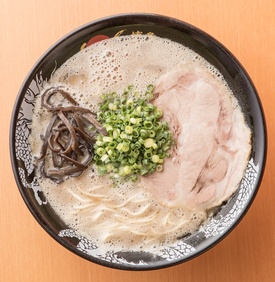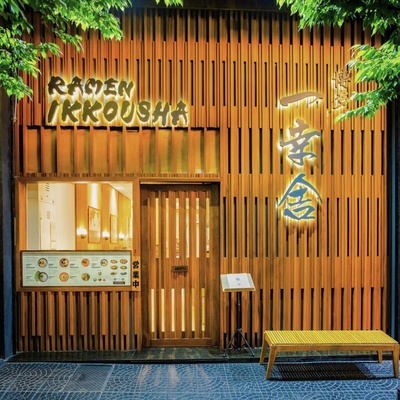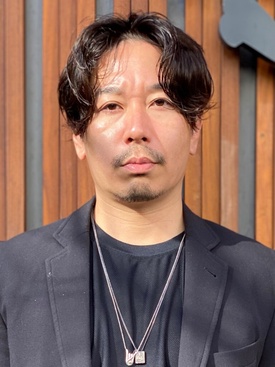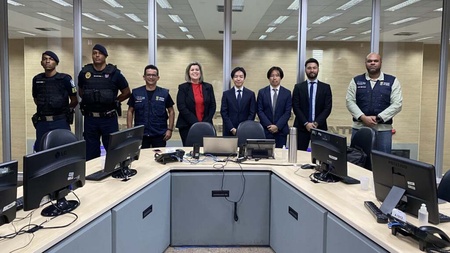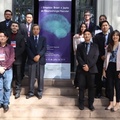In the eighth installment, we spoke with Takamasa Kuratomi (40 years old, from Kanagawa Prefecture), president of the BBBR Group. He moved from Japan to Brazil in 2004 at the age of 21, and currently runs four companies.
BBBR Group's four businesses
① BBBR Consulting : Consulting for JICA's ODA (Official Development Assistance) projects, providing business support to Japanese small and medium-sized enterprises in Brazil and helping to solve overseas issues through Japanese companies' technology.
② Latin Alimentos : Imports and sells Chilean EV olive oil to Japan, developed with the concept of "olive oil that goes well with Japanese cuisine," such as soy sauce and soup stock.
3. Ikkosha : A tonkotsu ramen specialty store that is constantly growing and innovating. They faithfully reproduce the original technique of Ikkosha in Fukuoka called "Yobimodoshi", and also import the soy sauce sauce for the ramen directly from Hakata. "Yobimodoshi" is a craftsmanship that adds new fresh soup to the rich, matured soup to maintain a constant concentration and flavor.
With a sense of mission that "If we don't do it, who will?", they developed the "Iekei Ramen" that originated in Yokohama after about three years of trial and error. They add chicken stock to the pork bone soup, and add chicken oil (Chi-yu) extracted from the skin of the parent chicken to improve the flavor. The noodles are custom-made noodles called "reverse cut noodles", which are made by cutting the noodles in a large cross section, allowing more water to enter through the cut surface, resulting in noodles with a chewy texture. They imported a special noodle-making machine from Japan just to make these noodles.
This year, to commemorate the fifth anniversary of its opening, the restaurant also began serving "Jiro-style ramen," a dish popular among young people with voracious appetites in Tokyo.
Regarding his spirit of adhering to the policy of running an authentic ramen restaurant in Brazil, to the point that he has been called a "ramen maniac," Kuratomo says, "Even if people don't notice it now, I believe that in 10 or 20 years' time, I am working hard, and I will be helping to develop the market."
④ Keishi : With the opening of "Ikkosha" and the full-scale entry into the ramen market, he noticed the demand for noodles and established the noodle factory "Keishi" to pursue full-scale noodle-making techniques. By default, there are 12 types of ramen noodles, and if requested, he will also develop custom noodles to suit the customer.
In addition to noodles, the company also produces udon, soba, gyoza, xiaolongbao, shumai, meat buns, soups, and soy sauce sauces, and with a wide variety of products and reliable techniques, it currently wholesales its products to approximately 170 restaurants.
The philosophy, mission and vision that support the BBBR Group
Kuratomi strongly advocates the necessity of a philosophy and mission in running a company. If a philosophy and mission are not established, once economic and prestigious success is achieved, the sense of satisfaction will cause one to lose motivation. His philosophy is simply "for the world, for people," and a mission is a lifelong mission to be achieved.
The BBBR Group's corporate philosophy is to "pursue the physical and spiritual happiness of our employees and contribute to the development of society through our business" and "pursue profits and innovation simultaneously." Our mission is to "engage in business that only minorities can do" and "serve as a bridge between Japan and Brazil."
The minority here refers to small and medium-sized enterprises, and the mission is to take on challenges that only small and medium-sized enterprises can undertake. The vision is "Aiming to be the only one, not number one." He also says that the conditions for business success are "never giving up until you succeed," "mastering one thing," and "putting customer satisfaction first."
In line with this philosophy and mission, since the company was founded, it has been using the Japanese community as a gateway to bring new technologies and culture from Japan to the Brazilian market.
A new challenge: using crime prediction AI to improve public safety in Brazil
Kuratomi's new challenge is to use crime prediction AI to improve public safety in Brazil. This solution predicts what kind of crime will occur in the future, at what time and where, by feeding AI with crime data held by police organizations. The aim is for police organizations to use this to carry out more efficient patrols.
He has spent over six years working on a project to improve public safety in Brazil through Japanese crime prevention technology. Singular Perturbations, the company he is partnering with, is a group of experts in Japan researching crime prediction AI. In a trial run conducted by the police in Belo Horizonte, Minas Gerais, the number of copper cable thefts decreased by 69% over a two-month period, demonstrating satisfactory results.
In response to these results, 16 police organizations, mainly in Brazil and Mexico, have requested to conduct trials. In addition, he will become CEO of Cingular's Brazilian subsidiary, which is scheduled to be established in August.
Public safety is one of Brazil's biggest challenges. The serious challenge will continue to be how much Japanese AI solutions can contribute to improving public safety in Brazil.
|
Overview of BBBR Group |
*This article is reprinted from Brasil Nippou (July 22, 2023).
© 2023 Tomoko Oura



